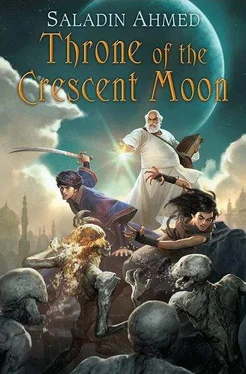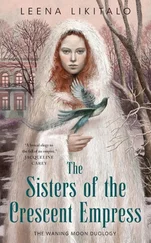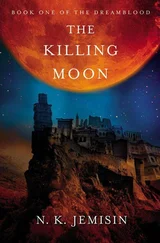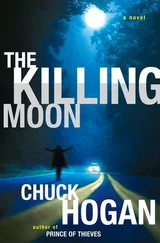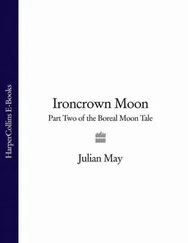As they made the long walk to the gates of the palace, Dawoud shifted his attention to Raseed. The boy’s eyes kept darting to the tribeswoman and then to the paving stones before him. He is worrying about protecting her. Wondering how to fulfill his duties and keep the girl safe at the same time . This worried Dawoud. Not the dervish’s cloaked devotion to Zamia—Dawoud accepted his wife’s claims that the obvious feelings between the two young ones would not be an impediment; that in fact “love was what made everything else matter,” despite the fact that young people’s love was a thing of foolishness and first sights. No, it wasn’t Raseed’s interest in the girl that worried Dawoud. It was the dervish’s obvious struggle with that interest, and the second-guessing that came with it. They were hunting monsters in the Crescent Moon Palace. In a situation like this, second-guessing could mean the death of the world.
They were about a dozen yards from the gate to the palace courtyards when a gray-eyed young officer of the guard stopped them.
“Hold! Who are you that you dare approach the palace of the Defender of Virtue wearing weapons?” The man’s hand rested easily on the pommel of his sword.
“God’s peace, guardsman. I am Dawoud Son-of-Wajeed, a friend of Captain Hedaad’s. I must speak to the captain at once. He is expecting me to call upon him.” It was true enough that he could say it with authority.
“Captain Hedaad?” The man looked uncertain but not unfriendly. “Well, I can’t leave my post, Uncle. But if you truly have business with the captain, I will send for him.”
“That will be fine. The matter is urgent, though, so please hurry.”
“As you say.”
Dawoud had been prepared to press silver into someone’s palm in order to get his message up to Roun. But apparently his and his friends’ fates were kind. In their hour of need, they had met with an honest guardsman. It was gratifying, while on this mad quest in a land not even his, to see Abassen’s agents acting as they ought.
The young officer called a slender guardsman over. “Kassin! Send word to Captain Hedaad that—”
“Why, now, are we disturbing the captain?” a vaguely familiar voice broke in.
Name of God, no!
The long-faced minister from the Khalif’s court came walking up surrounded by a retinue of a half-dozen guardsmen. What on God’s great earth is he doing here? “What do we have here?” he said. The gray-eyed officer started to explain, but the minster waved the young man back to the guardhouse. Then he turned to Dawoud.
“You were warned to stay away from the palace, old man. And instead you have returned with armed friends! You are either mad or the foulest of traitors.”
Dawoud knew better than to try and speak to this man of the threat that loomed over the throne. “A thousand apologies, your eminence. I am here only because I need to see Roun Hedaad.” He heard his friends shuffling nervously around him.
The man’s eyes narrowed. “The captain is busy. And you have disregarded most traitorously the express wishes of his Majesty. Your friendship with the captain does not change that. Men! Seize them!”
Dawoud heard Raseed mumble a prayer. The Badawi girl growled. Dawoud looked a question at his wife and Adoulla in the wordless near-language that the three had developed over decades of fighting together. What do we do now?
But neither his wife nor Adoulla seemed to have any answers. And really, there was nothing they could do. Even if they were somehow able to kill a squad of guardsmen, more would show, and they would die before ever getting inside the palace. Their only hope was going along for now and waiting for an opportunity—or creating an opportunity—to get word to Roun Hedaad. And to hope that he could actually do something to help them. The guardsmen took his wife’s knife and Raseed’s sword, and marched them at spearpoint away from the gate.
Dawoud cursed the slow roll of this own thoughts and saw his frustration reflected in his wife’s and Adoulla’s eyes. There was a way out of this—the three of them had destroyed the Kemeti Golden Serpent and bested a whole band of invisible robbers. These were just men with weapons. They had only to puzzle out…
His train of thought broke as he realized the minister and his men were leading them away from the palace. This can’t be good . After a few minutes they were well away from the gates, in a secluded alley of the Palace Quarter. They came to a small, windowless house with a barred iron door. The minister opened this door himself with a set of three small keys. Once they were inside, the guardsmen closed the door behind them.
Adoulla was the first to finally find his tongue. “Why on God’s great earth have you brought us here?”
A big guardsman casually shoved the ghul hunter with his spear-butt and told him to shut up. The minister, still not saying a word to them, went to the center of the house’s one room and lifted up a dusty old rug. Beneath the rug was a metal grille, which the minister opened with yet another key. Though it was rusty, the grille made no noise when the minister swung it up. There was a stairway—wide enough for two men—carved into the stone floor beneath the grille, leading down to God-alone-knew-where. Some dank hole where we can be slain without the Captain of the Guard knowing about it, no doubt.
“No more of this!” Zamia shouted suddenly, her thoughts clearly going down the same road. She drew herself up fiercely and, Dawoud noticed, tried to hide the pain still in her side. “I can smell the deceit on you! A Banu Laith Badawi is not marched into murder quietly like some docile townsman!”
“I said, be QUIET!” the same guardsmen who’d jabbed Adoulla said, accentuating the last word with a much crueler jab of his spear into the small of the tribeswoman’s back. Zamia cried out and buckled but did not fall.
Dawoud didn’t even see Raseed move. But the next thing he knew the little dervish was, with one hand, holding the big guardsman aloft by the throat. If Dawoud had ever doubted Adoulla’s tales of the boy’s more-than-human prowess, he couldn’t doubt them now!
There was a sudden clatter of weapons, and another group of armed men came pouring out of the hole in the floor like ants from an anthill. They and the guardsmen formed a circle around Dawoud and his friends.
The new men were armed with daggers and cudgels. They wore the simple clothes of laborers or apprentices, though here and there Dawoud saw a bit of incongruous ornament: a silk scarf around the neck of the lanky man in front of him, an embroidered vest on a short but hard-looking boy to his right. At equidistant points of the circle of plainly dressed toughs were figures wearing some sort of livery. One of these was an ugly woman, tall and stout as a man. They were dressed identically, in tight-fitting linen breeches and thigh length overshirts the color of wet sand. The image of a swooping black falcon was dyed across the front of each shirt. These were better armed than the others. Each held a well-made cutlass and wore a small buckler made of steel-reed.
A bombastic voice boomed forth from the new group. “Leave the man be, Master Dervish! He has brought you here to speak with me, so let us start speaking!”
Pharaad Az Hammaz, the Falcon Prince, stepped into the center of the room. He moved like liquid in a man’s shape, though he was well over six feet tall and had the thick, sinewy arms of a blacksmith. His hand was on the black-and-gold handguard of his saber. Raseed let go of the big guard who had struck Zamia and the man collapsed, clutching his neck and desperately sucking in breath.
Dawoud found himself fumbling for his thoughts like a boy playing Beat the Blind Man. “You… you…” he turned to the long-faced minister, “ you work for him ?”
Читать дальше
